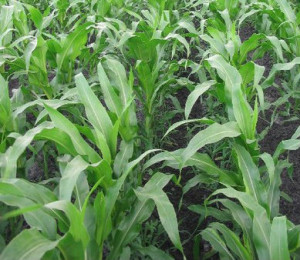Organic Corn Variety Trials
go.ncsu.edu/readext?274971
en Español / em Português
El inglés es el idioma de control de esta página. En la medida en que haya algún conflicto entre la traducción al inglés y la traducción, el inglés prevalece.
Al hacer clic en el enlace de traducción se activa un servicio de traducción gratuito para convertir la página al español. Al igual que con cualquier traducción por Internet, la conversión no es sensible al contexto y puede que no traduzca el texto en su significado original. NC State Extension no garantiza la exactitud del texto traducido. Por favor, tenga en cuenta que algunas aplicaciones y/o servicios pueden no funcionar como se espera cuando se traducen.
Português
Inglês é o idioma de controle desta página. Na medida que haja algum conflito entre o texto original em Inglês e a tradução, o Inglês prevalece.
Ao clicar no link de tradução, um serviço gratuito de tradução será ativado para converter a página para o Português. Como em qualquer tradução pela internet, a conversão não é sensivel ao contexto e pode não ocorrer a tradução para o significado orginal. O serviço de Extensão da Carolina do Norte (NC State Extension) não garante a exatidão do texto traduzido. Por favor, observe que algumas funções ou serviços podem não funcionar como esperado após a tradução.
English
English is the controlling language of this page. To the extent there is any conflict between the English text and the translation, English controls.
Clicking on the translation link activates a free translation service to convert the page to Spanish. As with any Internet translation, the conversion is not context-sensitive and may not translate the text to its original meaning. NC State Extension does not guarantee the accuracy of the translated text. Please note that some applications and/or services may not function as expected when translated.
Collapse ▲by Gerry Cohn, Southeast Pools Coordinator at Organic Vally-CROPP Cooperative

Organic Valley and North Carolina State University have joined forces to investigate the performance of organic corn varieties in the hot and humid southeast.
Between 1995 and 2008, organic corn acreage increased by 500% nationwide, and it continues to grow rapidly in response to supply shortages, premium prices, and increased consumer demand for organic meat, eggs, and dairy products. With rising prices and improvements in organic weed control and fertility, both grain and livestock producers are seeking practical information about the performance of different varieties under local conditions.
In 2012, Kentucky State University and Organic Valley collaborated to conduct organic corn variety trials on nine organic farms in Kentucky, Ohio, Indiana, and Pennsylvania(http://organic.kysu.edu/OrganicCornTrial2012.pdf). Strong national interest in the project has led 50 organic farmers and 5 university organic farms to volunteer to participate in similar trials in 2013, with 30 donated varieties from 7 different seed companies.
This project gives organic farmers much needed, reliable demonstrations of multiple varieties of corn yields in order to make decisions about which varieties are likely to improve the sustainability and profitability of their operations. Since none of these seed varieties were actually in our region, North Carolina farmers particularly value the information collected from these on-farm demonstrations because they provide opportunities to assess performance under localized real world conditions on working organic farms.
The Center for Environmental Farming Systems in Goldsboro and Reedy Fork Farm in Guilford County grew 25 varieties apiece in 2013. This project was highlighted at the Organic Grain Field Day at CEFS on July 30th. Keep an eye out for results in the next issue of this newsletter as you make your planting plans for 2014.


